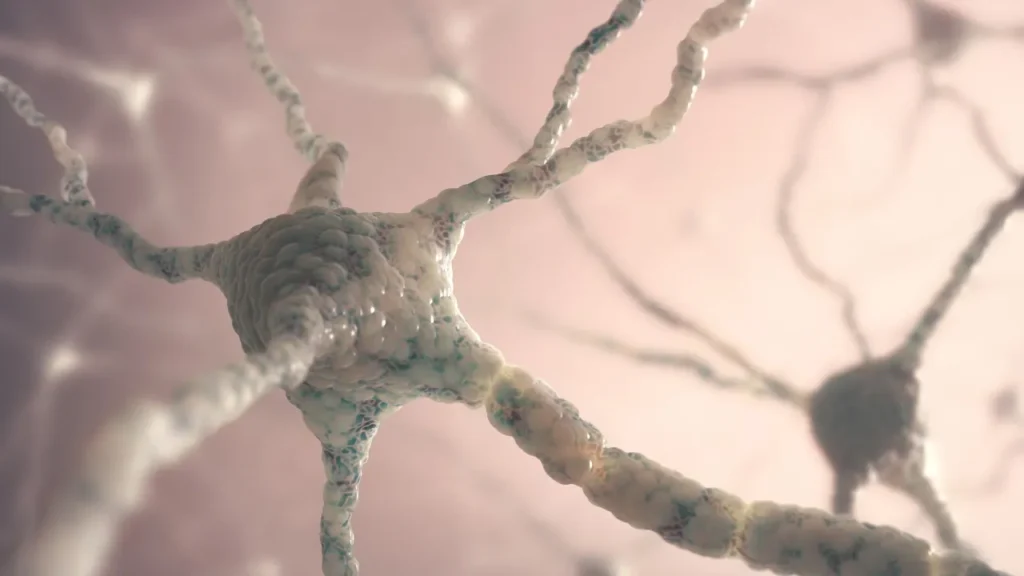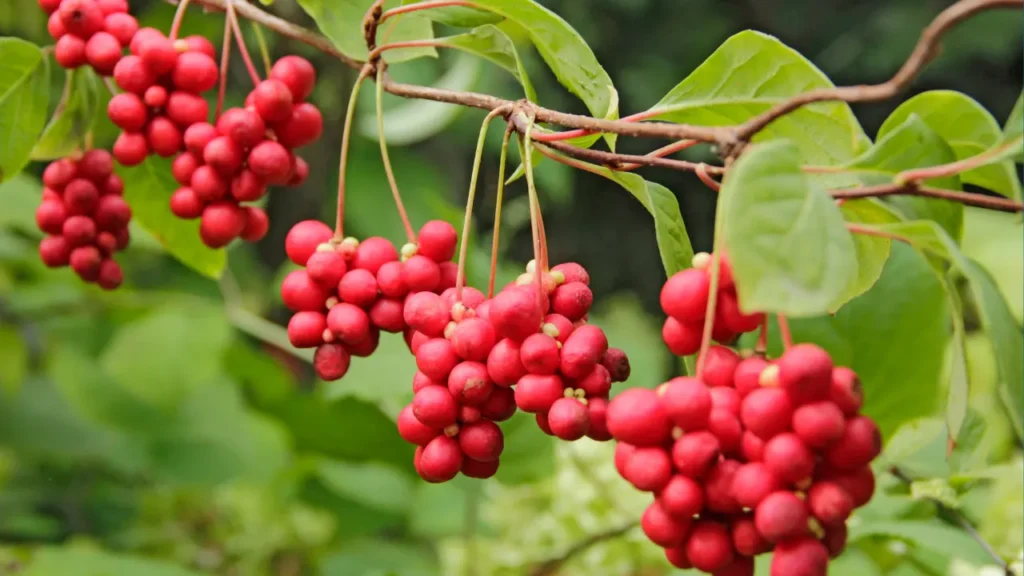Schisandra chinensis, often known as schisandra or five-flavor-fruit, has been a staple of traditional Chinese medicine for generations, due to its unique flavor and health benefits. Schisandra has recently gained attention in scientific studies due to its use in nootropic pills to improve alertness, focus, and cognition. This article discusses the nature, health benefits, ideal dosage, side effects, potential substance interactions, and safe use of schisandra as a nootropic supplement.
You May Also Like:
Arsenic: Benefits, Dosage, Side Effects, Drug Interactions, And Other Important Information
Brewer’s Yeast: Benefits, Dosage, Side Effects, Drug Interactions, and Other Important Information
Schisandra: Benefits, Dosage, Side Effects, Drug Interactions, And Other Important Information is an original (NootropicsPlanet) article.
The Nature of Schisandra
Schisandra is a deciduous vine found in the woods of northern China and the Russian Far East. Its berry is known for containing five unique flavors: sweet, sour, salty, bitter, and pungent, which, according to traditional Chinese medicine, correlate to the five basic components and organs. This distinguishing feature supports its holistic approach to health, which seeks to balance the body’s internal systems.
Schisandra’s nootropic properties can be related to its high lignan content, which is a type of polyphenol. Schisandrin, gomisin, and deoxyschizandrin are the most notable lignans present in the fruit, which also contains essential oils, vitamins, and minerals that contribute to its overall health advantages.
Health Benefits of Schisandra
The health benefits of schisandra chinensis are extensive, impacting both physical and mental well-being through its unique composition of bio-active compounds. Schisandra’s broad spectrum of health benefits can be attributed primarily to its lignans, which include schisandrin, gomisin, and deoxyschizandrin, among others. These compounds interact with various biological pathways to confer a range of health benefits:
Enhanced Cognitive Function and Mental Performance: Schisandra’s nootropic properties are among its most valued characteristics. Studies indicate that it can greatly improve mental performance, such as increased alertness, focus, and memory recall. These cognitive benefits are assumed to be enabled by the fruit’s antioxidant properties, which lower oxidative stress in the brain, as well as controlling neurotransmitter systems, which are essential for cognitive processes.
Stress Reduction and Adaptogenic Properties: Schisandra is an adaptogen, which means it helps the body better adapt to stress. Schisandra can regulate the hypothalamic-pituitary-adrenal (HPA) axis, lowering anxiety and depression symptoms and increasing general resilience to physical and mental stressors.
Liver Protection: Schisandra has shown hepatoprotective properties, owing mostly to its lignans, which can protect the liver from toxins and stimulate liver regeneration. Its antioxidant properties also serve to neutralize damaging free radicals and reduce inflammation in liver tissues, which can aid in the treatment of liver illnesses like hepatitis and cirrhosis.
Immune System Support: Schisandra’s bio-active components have been demonstrated to strengthen the immune system. Its anti-oxidant and anti-inflammatory properties can help the body withstand infections and disorders. Furthermore, schisandra can alter the immune response, potentially lowering the risk of autoimmune diseases.
Antioxidant and Anti-inflammatory Effects: Schisandra’s strong antioxidant content can neutralize free radicals, protecting cells and lowering the risk of chronic diseases like heart disease, diabetes, and some malignancies. Its anti-inflammatory properties enhance its ability to protect against chronic illnesses while also supporting overall health and longevity.
Improvement in Physical Endurance and Performance: Schisandra improves physical performance by boosting endurance and decreasing weariness. This is especially advantageous for athletes and for those who participate in strenuous activities. The mechanism underlying this effect includes optimizing oxygen consumption and efficiently removing lactate and urea, which are byproducts of physical effort.

Chemistry of Schisandra
Schisandra’s principal bio-active components are dibenzocyclooctadiene lignans, which include schisandrin, gomisin, and deoxyschizandrin. These lignans are assumed to account for the majority of schisandra’s medicinal benefits, including its nootropic effects. Schisandra berries also contain essential oils, vitamins (particularly vitamin C and E), and minerals, which contribute to their antioxidant and health-promoting effects.
Schisandrin and other lignans’ structures make them good free radical scavengers, lowering oxidative stress. This antioxidant activity is critical for shielding neurons from damage induced by reactive oxygen species (ROS), preserving cognitive function and maybe lowering the risk of neuro-degenerative disorders.
Physiological Properties of Schisandra
The physiological properties by which schisandra exerts its effects on the body and brain are complex and involve several pathways:
Adaptogenic Effects and the HPA Axis
The hypothalamic-pituitary-adrenal (HPA) axis, the body’s core stress response system, is the primary property by which schisandra exerts its adaptogenic effects. Schisandra can improve the body’s stress tolerance by altering the activity of this axis. It achieves this by regulating the release of stress hormones like cortisol and neurotransmitters involved in the stress response. This regulation aids in maintaining homeostasis under stress, which benefits cognitive functions by minimizing stress-induced impairment.
Antioxidant Activity and Neuro-protection
Schisandra’s lignans are powerful antioxidants that neutralize free radicals and reduce oxidative stress. This antioxidant effect is crucial in the brain, where oxidative stress can cause cell loss and cognitive impairment. Schisandra protects neurons from oxidative damage, hence supporting neuronal integrity and function.
Modulation of Neurotransmitter Systems
Schisandra affects multiple neurotransmitter systems, including dopamine, serotonin, and acetylcholine, which are required for mood control, attention, memory, and overall cognitive function. It is thought to regulate the release and absorption of these neurotransmitters, improving brain communication and cognitive functions. Schisandra, for example, can boost dopamine levels, which are linked to better mood and cognitive alertness, while also altering serotonin levels, which promote well-being and sleep quality.
Liver Enzyme Regulation
Schisandra influences the liver’s cytochrome P450 enzyme system, which is essential for the metabolism of many medicines and poisons. Schisandra can affect the bioavailability and efficacy of numerous drugs by altering these enzymes, emphasizing the necessity of recognizing potential interactions while using schisandra in combination with other substances.

Optimal Dosage of Schisandra
Choosing the right dose of schisandra is critical for maximizing its nootropic benefits while limiting any negative effects. The quantities used in studies have ranged from 1 to 9 grams of dried schisandra fruit daily, or similar extracts. Schisandra extract at 200-400 mg daily is frequently advised for cognitive enhancement. Individual responses, however, can vary, therefore dosage should be adjusted based on personal tolerance and objectives.
Side Effects of Schisandra
Schisandra is generally thought to be safe for most individuals when ingested in the prescribed dosages. Some individuals can develop moderate side effects, such as heartburn, upset stomach, and decreased appetite. Schisandra’s stimulating effect on the nervous system can result in sleeplessness or restlessness in those who are sensitive.
Potential Substance Interactions
Schisandra can interact with a variety of drugs and substances due to its effects on liver enzymes involved in drug metabolism. It can specifically influence the cytochrome P450 enzyme system, potentially affecting medication metabolism. This combination can either reduce the effectiveness of drugs or magnify their side effects. Individuals using medication, particularly those metabolized by the cytochrome P450 system, should see their doctor before introducing schisandra into their daily routine.

Best Responsible Use of Schisandra
Individuals interested in using schisandra as a nootropic must examine a number of important factors before taking it. Starting with a modest dose and gradually increasing it allows individuals to evaluate their body’s response and adjust as needed. Maintaining a balanced attitude, understanding that no supplement can replace a healthy lifestyle, and being aware of potential interactions with other substances are essential for safely and successfully using schisandra’s benefits.
Schisandra:
Conclusion
In summary, schisandra (also known as schisandra chinensis or “five flavor fruit”) offers a range of potential health benefits. This adaptogenic herb has been used traditionally in Asian and Russian medicine for generations. Remember to consult with a healthcare professional before starting any new supplement, especially if you have underlying health conditions or are taking other medications. Individual responses to schisandra may vary, and it’s essential to make informed decisions for your health.

References:
- Schisandra – Uses, Side Effects, and More. Retrieved From:https://www.webmd.com/vitamins/ai/ingredientmono-376/schisandra
- Potential of Schisandra chinensis (Turcz.) Baill. in Human Health and Nutrition: A Review of Current Knowledge and Therapeutic Perspectives. Retrieved from: https://www.ncbi.nlm.nih.gov/pmc/articles/PMC6412213/
- An analysis of the nutritional effects of Schisandra chinensis components based on mass spectrometry technology. Retrieved from: https://www.ncbi.nlm.nih.gov/pmc/articles/PMC10408133/
Important Note: The information contained in this article is for general informational purposes only, and should not be construed as health or medical advice, nor is it intended to diagnose, prevent, treat, or cure any disease or health condition. Before embarking on any diet, fitness regimen, or program of nutritional supplementation, it is advisable to consult your healthcare professional in order to determine its safety and probable efficacy in terms of your individual state of health.
Regarding Nutritional Supplements Or Other Non-Prescription Health Products: If any nutritional supplements or other non-prescription health products are mentioned in the foregoing article, any claims or statements made about them have not been evaluated by the U.S. Food and Drug Administration, and such nutritional supplements or other health products are not intended to diagnose, treat, cure, or prevent any disease.


